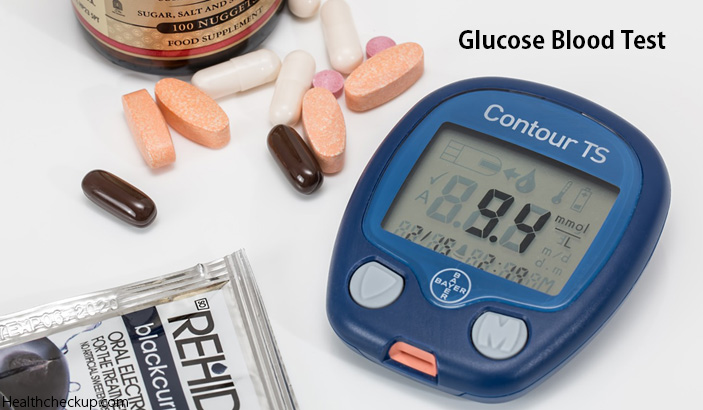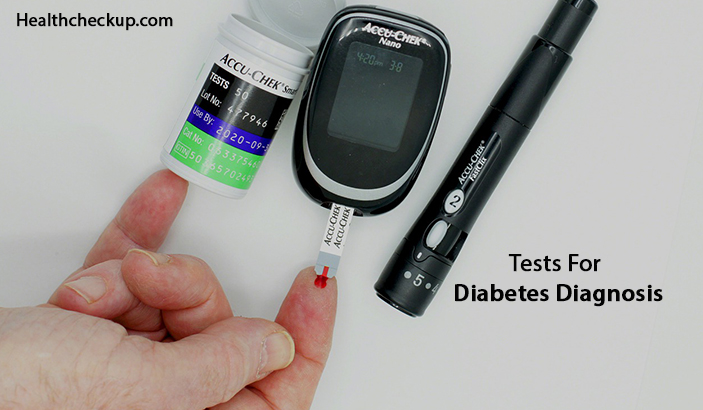Glucose which in the common parlance is known as simple sugar. It is the most important and the main source of energy in the body. This energy derived by the body due to the food and fluids consumed is then transmitted to the various cells and the organs of the body. So that the normal life processes can be carried on. This glucose from our diet gets absorbed by the blood which then helps in transmitting the energy to the various parts of the body.
Thus, the blood sugar level or blood glucose level is essentially the amount of glucose present in the blood of human beings or any other living being. The level of blood glucose needs to be appropriate and adequate in order to maintain the efficiency of the human body. Even the slightest of deviations in such blood glucose levels can cause big problems. The blood glucose levels can be monitored easily by taking the blood glucose level tests.
Why Do You Have a Glucose Blood Test?
The blood glucose levels in the blood of an individual determine the amount of energy the individual would possess. However, both excess of blood glucose and deficiency in blood glucose levels can be harmful to the human body. While the excess blood glucose levels indicate a medical condition called Diabetes where the body is unable to control the sugar levels, lower blood glucose levels would certainly make the individual feel weak and drained out of energy.
Thus, it is important and recommended to undertake a glucose blood test on a regular basis so that such blood glucose levels can be monitored and controlled accordingly. Excess blood glucose levels for a prolonged period can not only affect the functioning of the organs of the body but can also lead to serious issues such as diseases of the heart and blood vessel, kidney failure, nerve damage, and eye problems.
Though Blood Glucose tests are prescribed for everyone on a regular basis, such tests almost become mandatory for people with type 1 diabetes, type 2 diabetes, and gestational diabetes. Gestational diabetes refers to diabetes affecting a pregnant mother during her pregnancy.
Glucose Blood Test Levels
The blood glucose levels differ for various people depending on their age, metabolism of the body, stage of development, and any specific conditions such as pregnancy.
Normal Range of Blood Glucose Levels
- Less than 100 mg/dL when the glucose blood testing is done at fasting i.e., not having a meal for at least eight hours
- Less than 140 mg/dL when tested two hours after eating.
For normal individuals, blood sugar levels before meals should ideally be around 70 to 80 mg/dL. However, even a figure of 60 for some people and 90 for others is normal depending on their body’s metabolism.
It is very important to monitor the blood glucose levels in a pregnant woman not only. Because of her own health but even for the health and development of the fetus inside her. Ideally, the glucose blood test during pregnancy should reveal a figure below 95 mg/dl before meals, 140 mg/dl one hour after a meal, and 120 mg/dl two hours after a meal. In case the test reveals a higher figure, the pregnant woman should definitely consult her obstetrician or gynecologist.
Learn More about What To Do If Your Blood Sugar Drops
Glucose Blood Test Preparation
Blood glucose levels are usually measured by a simple blood test. But such blood tests surely require some amount of preparations such as
- In the case of a fasting blood glucose test, the individual should not be eating or drinking anything instead of water for eight hours before the test.
- The individual advised a fasting blood glucose test should schedule the test first thing in the morning so that he or doesn’t have to fast during the day.
- In case of random glucose test, the individual should eat and drink normally so that the exact control over blood sugar levels can be revealed.
- In case of glucose tolerance tests, the individual should fast for eight hours before the fasting test and after that, he or she should consume only the special sugary liquid provided and nothing else for the next two hours or before the glucose tolerance test is done.
The individual should inform the doctor or the lab technician about the medicines (both prescription and over the counter) taken by the individual. Since there are certain medicines which can interfere with the results of the blood glucose tests. Some of these medicines include
- Diuretics
- Hormone therapy
- Aspirin (Bufferin)
- Epinephrine (Adrenalin)
- Corticosteroids
- Birth Control Pills
- Phenytoin
- Antipsychotics
- Lithium
- Tricyclic Antidepressants
- Monoamine Oxidase Inhibitors (MAOIs)
- Sulfonylurea Medications
Glucose Blood Test Procedure
Various blood tests are conducted in order to confirm diabetes in any individual. Some of the commonly used tests include
- Fasting Plasma Glucose Test – In this test, the doctor would test the blood sugar levels of an individual after fasting or not eating or drinking anything for 8 hours. In case such test results are higher than 126 mg/dL, it can be confirmed that the individual has diabetes.
- Oral Glucose Tolerance Test – In this specific test, the doctor conducts a blood test at fasting just like in the previous test. After that, the patient is given a determined quantity of special sugary drink (mostly glucose drink). Then another blood test is conducted after two hours of consuming the drink. This test basically checks the glucose tolerance or control by the body. In case the sugar level is higher than 200 mg/dL after two hours, the patient is suffering from diabetes. This test is often recommended to check gestational diabetes or checking the glucose blood test levels during pregnancy as well.
- Random Check – This is the most common type of blood test which is recommended to almost anyone. In this test, the doctor tests the blood sugar levels in an individual randomly without any fasting and even after a meal. In case, such tests declare a blood sugar level of more than 200 accompanied by symptoms such as frequent urination, frequent bouts of thirst, and significant loss or gain of weight, then the individual is prescribed undergoing other blood sugar level tests such as fasting or glucose tolerance tests.
Learn More about Best Indian Snacks For Diabetes
Glucose Blood Test Results and Interpretation
After the glucose blood tests are conducted, it is important to understand and interpret the results correctly. This can be only done in case the individual is aware of the normal and abnormal levels revealed by the test.
Normal Results
- In the case of a fasting blood glucose test, if the result is between 70-100 milligrams per deciliter of blood, it is normal.
- In case of random blood glucose test, the result below 125 milligrams per deciliter is normal.
Abnormal Results
-
- Fasting Blood glucose level
- within 100 to 125 milligrams per deciliter of blood indicates pre-diabetes situation (diabetes can still be prevented with adequate precautions)
- above 126 milligrams per deciliter indicated diabetes
- Random blood glucose levels
- Within 140-199 milligram per deciliter of blood indicates pre-diabetes
- Above 200 milligrams per deciliter of blood indicates diabetes. This should be followed by a fasting blood glucose test or specific tests such as Hgba1c.
- Fasting Blood glucose level
Glucose blood test levels should be monitored closely and regularly for those who have either symptom of pre-diabetes or diabetes.
Medically Reviewed By

Samarpita is a dedicated freelance writer with avid experience in the space of health, she specializes in topics related to diet, nutrition, immune-related diseases, detection and prevention of diseases and taking a natural route to cure such diseases.








